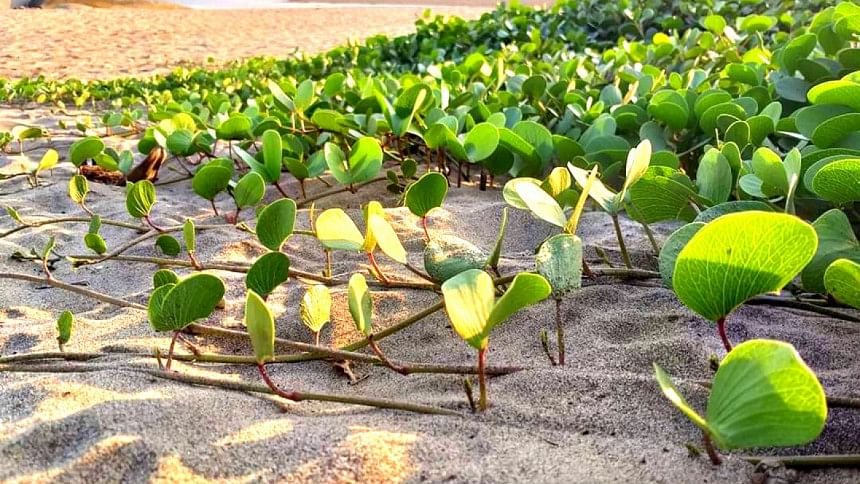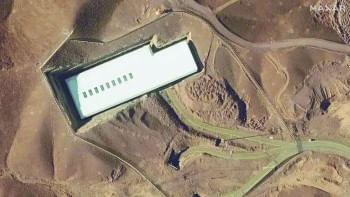Cox's Bazar beaches see the return of morning glory

It took nature a mere few weeks to reclaim what has always been hers. And she returned after a long time in vast stretches of the Cox's Bazar sea beach.
The form nature took is locally known as Sagorlota, or the Beach Morning Glory, a key component of the beach ecology which had disappeared from parts of Cox's Bazar due to unbridled movement of tourists and construction of structures along the beach.
But after a nationwide shutdown due to the coronavirus outbreak, the 120km of uninterrupted beach did not lie barren for too long. Thick vines began to sprout from the earth and with no disturbance in sight, they began to grow, covering the sandy shores with a swathe of green.
The plant, also known as the railroad vine, acts as a natural barrier against sea waves and protects the soil from erosion. Its presence has helped the reemergence of dunes, now seen in Kolatoli, Sugondha and Dorianogor -- three important beach areas of Cox's Bazar.
The sight of the plants has also brought renewed hope for a healthy beach ecology for both locals and experts.
Ahmed Gias, a resident of Dorianogor who also works to safeguard the ecology, told The Daily Star that he used to see how the Sagorlota helped create dunes, which in turn prevented erosion and acted as a shield against natural calamities.
Luxury hotels, which were built occupying many dunes along the beaches of Cox's Bazar, eventually tore away the roots of the Sagorlotha, he said, adding that no trace of the vine was seen anywhere in Sugondha, Kolatoli and Laboni points since the wave of tourists began to arrive.
Ibarhim Khalil Mamun, chief executive of the Cox's Bazar-based Youth Environment Society (YES), told The Daily Star the plant had sprouted due to the absence of human activity.
"It sprouts where humans do not tread," he said, adding that the government must take steps to contain the human movement on the beach to allow it "to breathe".
Dr Kamal Hossen, professor of the Institute of Forestry and Environmental Science at Chattogram University told The Daily Star that Sagorlota indicates how healthy a beach is.
It is an integral element in the sand dune ecosystem of any sea beach, he added.
"It acts as a soil binder, helps the seashore fight against strong waves and plays the role of a natural shield against erosion, stabilising the beach," he said.
Referring to uncontrolled human movement on the beach, he said due to human disturbance the plant had disappeared from most parts of the beach. The shutdown, however, had created hope for it to make a comeback.
The authorities must think about how to retain the plant for the overall betterment of the environment, Kamal said.

 For all latest news, follow The Daily Star's Google News channel.
For all latest news, follow The Daily Star's Google News channel. 








Comments